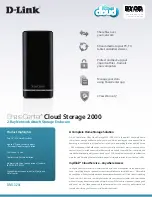
8. GLOSSARY AND ACRONYMS
sists of a set of standards for network manage-
ment, including an application layer protocol, a
database schema, and a set of data objects.
SSH
Secure Shell (SSH), sometimes known
as Secure Socket Shell, is a UNIX-based com-
mand interface and protocol for securely getting
access to a remote computer. It is widely used
by network administrators to control Web and
other kinds of servers remotely. SSH is actually
a suite of three utilities – slogin, ssh, and scp
– that are secure versions of the earlier UNIX
utilities, rlogin, rsh, and rcp. SSH commands
are encrypted and secure in several ways. Both
ends of the client/server connection are authen-
ticated using a digital certificate, and passwords
are protected by being encrypted.
TCP
The Transmission Control Protocol (TCP)
is one of the core protocols of the Internet proto-
col suite (IP), and is so common that the entire
suite is often called TCP/IP. TCP provides reli-
able, ordered, error-checked delivery of a stream
of octets between programs running on comput-
ers connected to a local area network, intranet
or the public Internet. It resides at the transport
layer.
Web browsers use TCP when they connect to
servers on the World Wide Web, and it is used
to deliver email and transfer files from one loca-
tion to another.
UDP
The User Datagram Protocol (UDP) is one
of the core members of the Internet protocol suite
(the set of network protocols used for the Inter-
net). With UDP, computer applications can send
messages, in this case referred to as datagrams,
to other hosts on an Internet Protocol (IP) net-
work without prior communications to set up spe-
cial transmission channels or data paths. The
protocol was designed by David P. Reed in 1980
and formally defined in RFC 768.
URL
A uniform resource locator, abbreviated
URL, also known as web address, is a spe-
cific character string that constitutes a refer-
ence to a resource. In most web browsers, the
URL of a web page is displayed on top in-
side an address bar. An example of a typi-
cal URL would be
, which indicates a protocol (http), a
hostname (www.example.com), and a file name
(index.html). A URL is technically a type of uni-
form resource identifier (URI), but in many tech-
nical documents and verbal discussions, URL is
often used as a synonym for URI, and this is not
considered a problem.
VPN
A virtual private network (VPN) extends a
private network across a public network, such as
the Internet. It enables a computer to send and
receive data across shared or public networks
as if it were directly connected to the private net-
work, while benefiting from the functionality, se-
curity and management policies of the private
network. This is done by establishing a virtual
point-to-point connection through the use of ded-
icated connections, encryption, or a combination
of the two.
A VPN connection across the Internet is similar
to a wide area network (
) link between the
sites. From a user perspective, the extended net-
work resources are accessed in the same way as
resources available from the private network.
VPN server
see
VPN tunnel
see
VRRP
VRRP protocol (Virtual Router Redun-
dancy Protocol) allows you to transfer packet
routing from the main router to a backup router
in case the main router fails. (This can be used
to provide a wireless cellular backup to a primary
wired router in critical applications).
WAN
A wide area network (WAN) is a network
that covers a broad area (i.e., any telecommu-
nications network that links across metropolitan,
regional, or national boundaries) using private or
public network transports. Business and govern-
ment entities utilize WANs to relay data among
employees, clients, buyers, and suppliers from
various geographical locations. In essence, this
123
Summary of Contents for SPECTRE V3
Page 1: ...Configuration Manual for v3 Routers ...
Page 22: ...3 STATUS Figure 4 WiFi Scan 13 ...
Page 32: ...4 CONFIGURATION Figure 12 Example 1 LAN Configuration Page 23 ...
Page 37: ...4 CONFIGURATION Figure 19 Example of VRRP configuration backup router 28 ...
Page 44: ...4 CONFIGURATION Figure 20 Mobile WAN Configuration 35 ...
Page 51: ...4 CONFIGURATION Figure 25 WiFi Configuration 42 ...
Page 74: ...4 CONFIGURATION Figure 39 IPsec Tunnels Configuration 65 ...
Page 105: ...4 CONFIGURATION Figure 63 Example 2 USB port configuration 96 ...





































